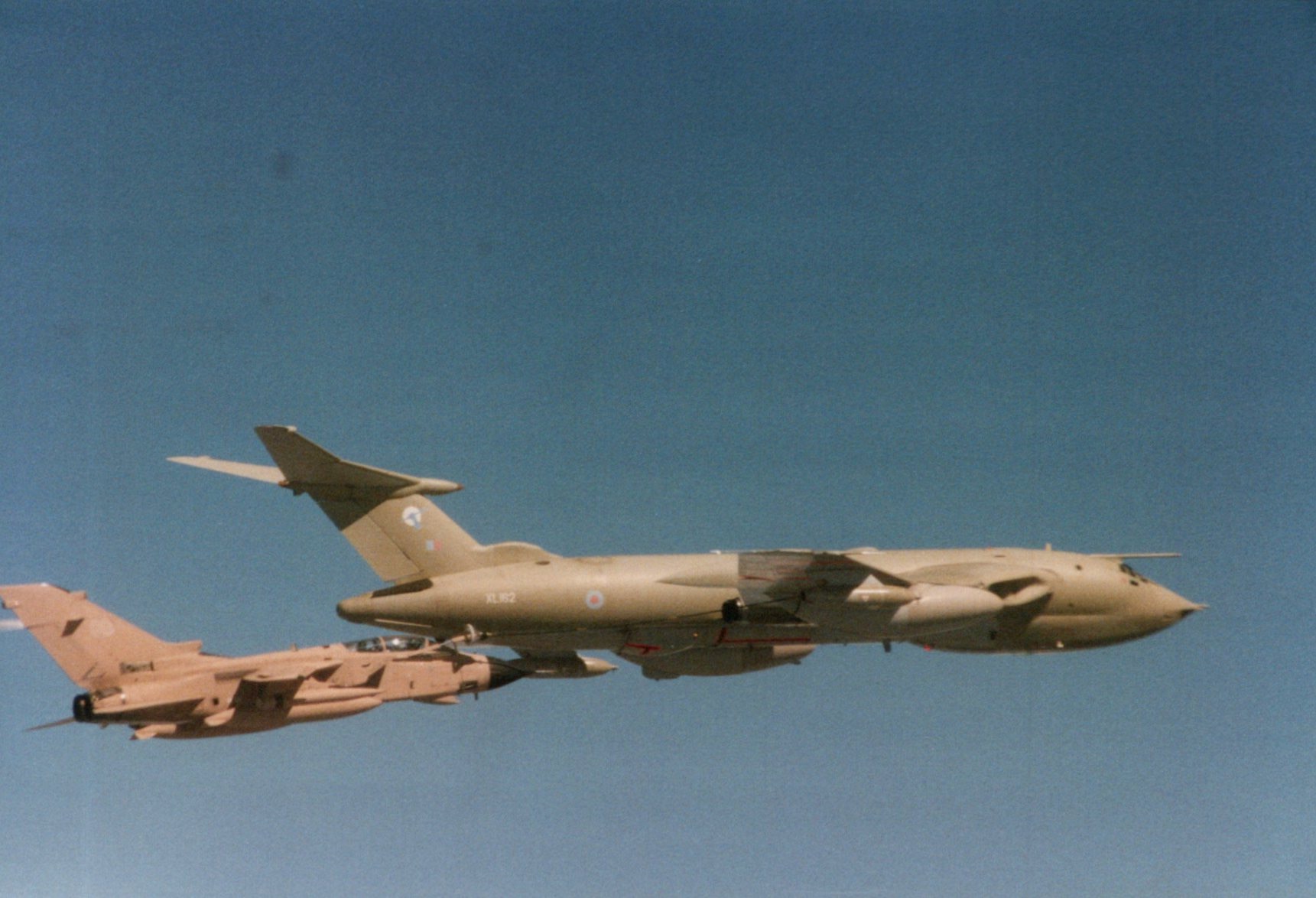This Youtube video just came to light. Picture above of a Victor and Tornado during Gulf War 1 – photographed from a TriStar over Saudi.
This crash was in the village of Stubton, 1 miles from RAF Fulbeck (hence listed here) Source: Information – https://aviation-safety.net/wikibase/55307
On Friday the 23rd March 1962, Victor XL159 left Boscombe Down for further low-speed trials. The crew consisted of the Handley Page test pilot Philip Murphy (28) the A&AEE pilot, Flt. Lt. Waterton (30), the Navigator Michael Evans (26) and two Handley Page Flight Test Observers, John Tank (25) and Peter Ellwood (23).
At about 1.30 p.m. the aircraft was at 15,000ft. over Lincolnshire carrying out trials with the gear and flaps down, in Philip Murphy’s hands. Control was then passed to Flt. Lt. Waterton to continue the programme.
Shortly afterwards the aircraft entered a stable stall, from which a flat spin developed. Waterton handed control back to Murphy who took recovery action but was unable to regain control, most probably because the elevators were blanketed by the turbulent air above the stalled wing. The aircraft descended almost vertically, but in a relatively horizontal plane, and resisted all attempts to get it back under control.
At 9,000 feet, Murphy gave the order to abandon the aircraft, and shortly afterwards the two pilots ejected. Waterton was attempting to make a ‘Mayday’ call, but on hearing his Captain say “out you go” decided that it would be imprudent to wait. The flight crew were having difficulty in overcoming ‘g’ forces associated with the spin and only John Tank succeeded in getting out of the aircraft. He and the two pilots parachuted to safety. Underneath the Victor, now spinning rapidly out of the sky, lay the quiet village of Stubton, looking out from a slight rise in the ground, northwards towards Newark, and southwards towards the Lincolnshire Cliff around Barkston Heath.
On the corner where the roads from Beckingham and Claypole join and turn towards Brandon, stood Home Farm the home of Mr. and Mrs. Dennis Burtt, members of the farming family known in this part of Lincolnshire as “Burtts of Brandon”. Mr. and Mrs. Burtt were in their dining room, probably having just finished lunch, when, according to local information, they heard the noise of an aircraft nearby, followed by the clear reports of the two ejector seats. Providentially they were curious enough to go to the French Window to see what they could see, and were still looking out when some ninety tons of Victor landed on the house.
Mr. and Mrs. Burtt were blown through the window and onto the lawn, sustaining a broken leg and burns respectively. Less fortunate were their housekeeper, Mrs. Annie Gibson, and nursemaid, Cecily Gibson, both of whom were in the farm kitchen. They died in the flattened heap of masonry and aircraft, together with Michael Evans and Peter Ellwood, neither of whom had been able to get out of the Victor in time.
Evidence of the aircraft’s lack of forward speed came from the fact that both ejector seat buckets landed within 100 yards of the wrecked farmhouse. A thick pall of black smoke rose above the village as the Victor’s fuel load and the combustible material in the house burned. The only recognisable remnant of the aircraft was its distinctive tail-plane.
Farm Foreman Mr.John Scrimshire rushed to the aid of his employer, dragging him clear of the wreckage, and to safety, before the site was engulfed in flames. John was later awarded the ‘British Empire Medal’ for gallantry.


